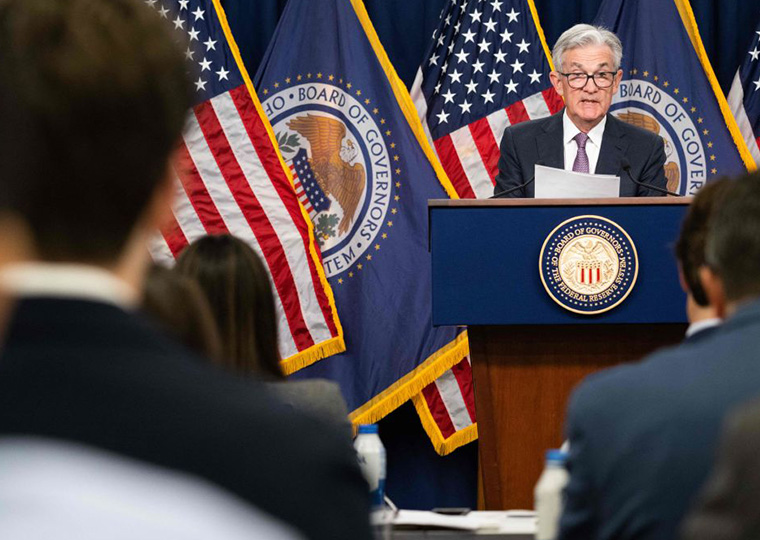Taking a stand on controversial issues can hurt sales, but the effect is brief
Over a weekend in August 2019, two mass shootings — including one at a Walmart store in El Paso, Texas — killed 32 people and again reignited the debate over U.S. gun policy. In the month after the shootings, more than 140 corporate executives signed a letter demanding senators take “urgent action” to curb gun violence.
Walmart’s CEO, Doug McMillon, said his stores would further restrict the sale of guns and ammunition. The National Rifle Association responded that Walmart’s move could “risk alienating whatever remaining pro-gun shoppers it has left.”
CEOs are generally wary of taking positions on issues outside their core businesses, and for good reason. A company such as Walmart, with a large and diverse consumer base, is as likely to alienate as many customers as it pleases when an executive takes a high-profile stance on divisive issues. Why take the risk?
Opt In to the Review Monthly Email Update.
Allies Won’t Increase Their Buying at Your Stores
A paper published in Strategic Management Journal by University of Virginia’s Young Hou and UCLA Anderson’s Christopher Poliquin examines how CEOs’ support for gun control after the 2019 shootings affected the shopping behavior of liberal and conservative consumers. The authors found a measurable decline in shopping trips among conservatives likely to oppose the company’s public stance. But there was no offsetting increase in trips by gun-control supporters.
On the plus side, the decline in shopping visits faded after four weeks and had disappeared entirely by 10 weeks.
“I think CEOs who are reluctant to speak out have legitimate concerns, and our study suggests they’re right to be cautious,” Poliquin said in an email. “That said, we didn’t find persistent negative effects for CEOs that supported gun control.”
Despite the potential downside, CEOs increasingly are in the spotlight for taking positions on hot-button topics:
- Nike’s John Donahoe expressed support for Black Lives Matter protests in the wake of the 2020 killing of George Floyd.
- Dan Cathy, chairman of Chick-fil-A, has spoken out against same-sex marriage and LBGTQ rights.
- Bob Chapek, then CEO of Disney, opposed Florida’s “Don’t Say Gay” law.
- Robert “Bob” Unanue, CEO of Goya Foods, backed Donald Trump in the 2020 election.
Such public positions can produce several, sometimes contradictory, effects. Activism by top executives might help align the company with the values of its employees and give it a positive brand identity among like-minded consumers. It can also alienate other employees, customers, shareholders and business partners who disagree.
Cellphone Data and County Voting Records
While studies indicate that nearly three-quarters of consumers believe CEOs should speak out on important social issues, the share shrinks considerably with extremely sensitive topics like abortion and gun control. In one survey, 45% of respondents had a favorable attitude toward companies whose CEOs support gun control, but 35% had an unfavorable opinion.
To measure this phenomenon, Hou and Poliquin used cellphone location data to track the number of visits to retail stores of companies whose CEOs supported gun control in 2019. Of the 146 companies represented, only four — Walmart, Dick’s Sporting Goods, Levi’s and The Gap — had retail outlets. The researchers matched store locations with the county results of recent presidential elections, calculating the average share of votes cast for the Republican and Democratic presidential candidates in 2008, 2012 and 2016.
Adjusting the results for seasonal differences, the authors found an overall 3% decline in store visits — about 200 visits a week. However, in heavily Republican counties (those where the GOP received at least 75% of the vote total), stores experienced a 5% decline in visits. There was little change in the number of store visits in heavily Democratic counties.
This is consistent with other studies about political backlash. “CEO activism leads to greater effects among those who disagree with a CEO’s position,” the authors write.
It’s also notable that these effects don’t last very long. While conservative shoppers initially avoided the stores whose CEOs support gun control, they began to return after about four weeks. The lost business was also fairly minor, with an estimated loss in sales of between $800 million to $1.1 billion — about 0.2% of Walmart’s annual revenue.
Featured Faculty
-
Christopher Poliquin
Assistant Professor of Strategy
About the Research
Hou, Y., & Poliquin, C. W. (2022). The effects of CEO activism: Partisan consumer behavior and its duration. Strategic Management Journal, 44(3), 672-703.






